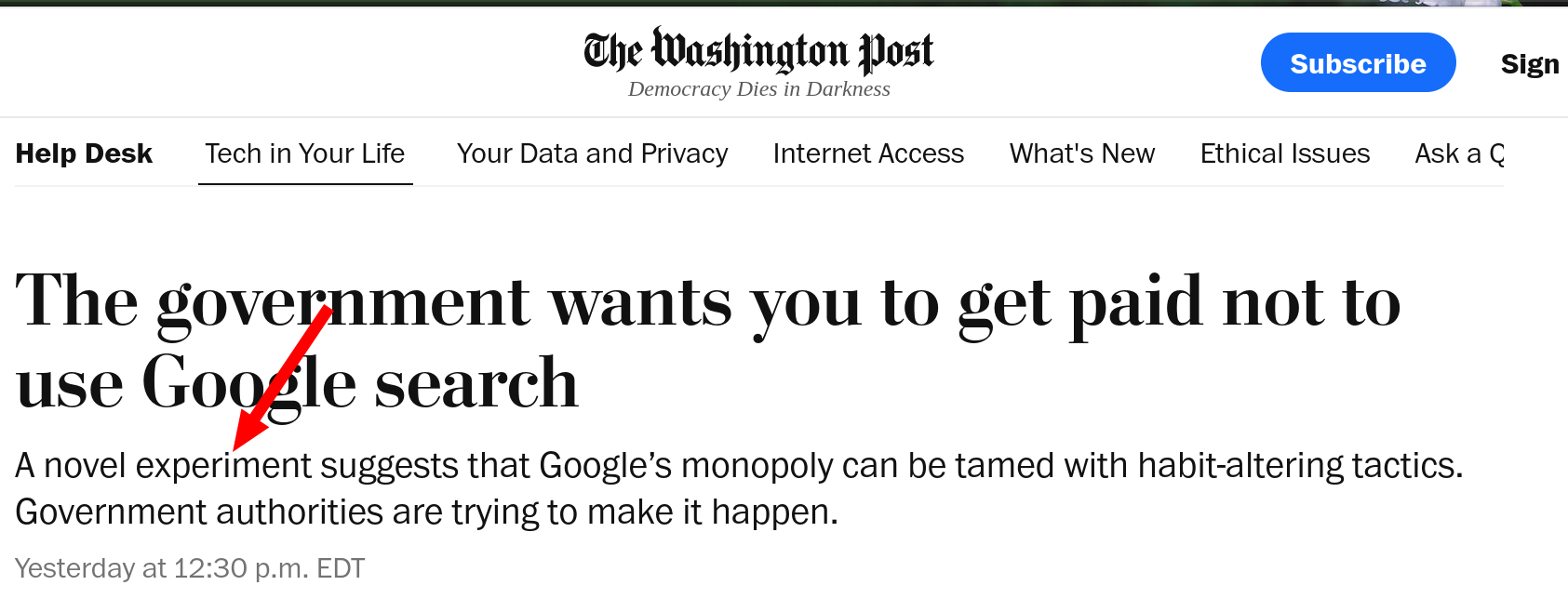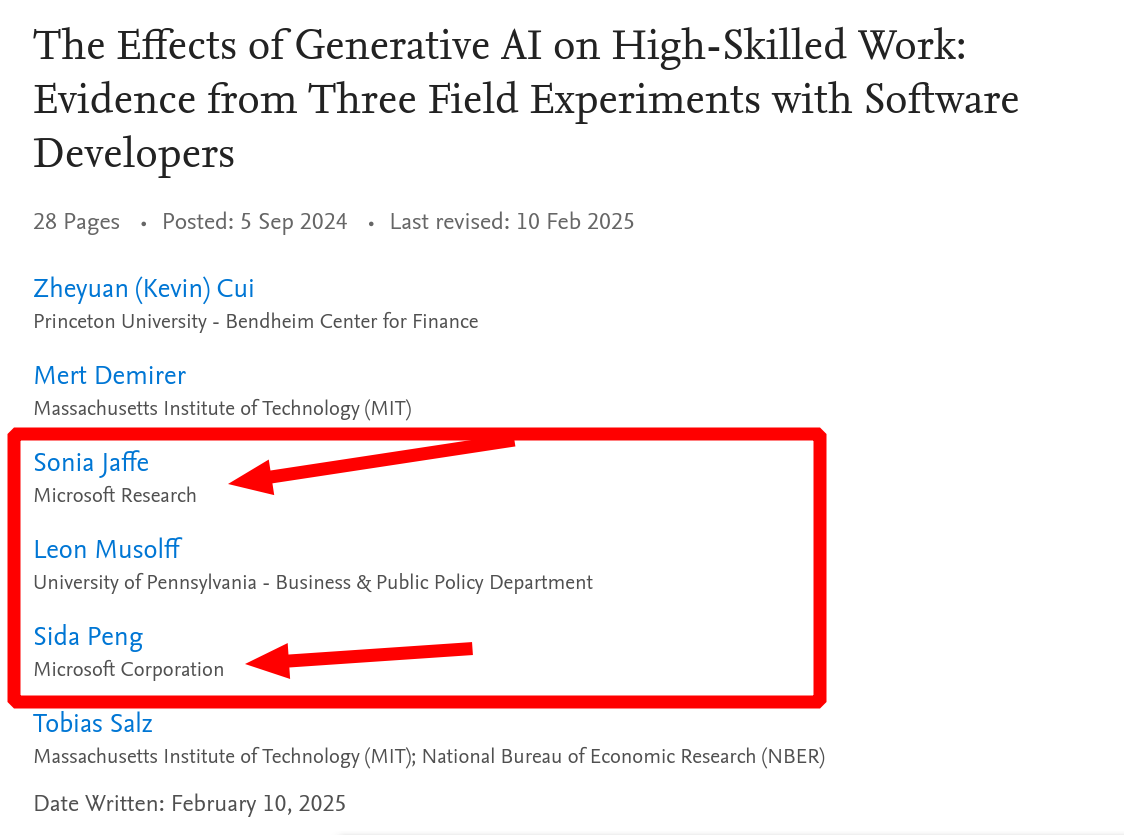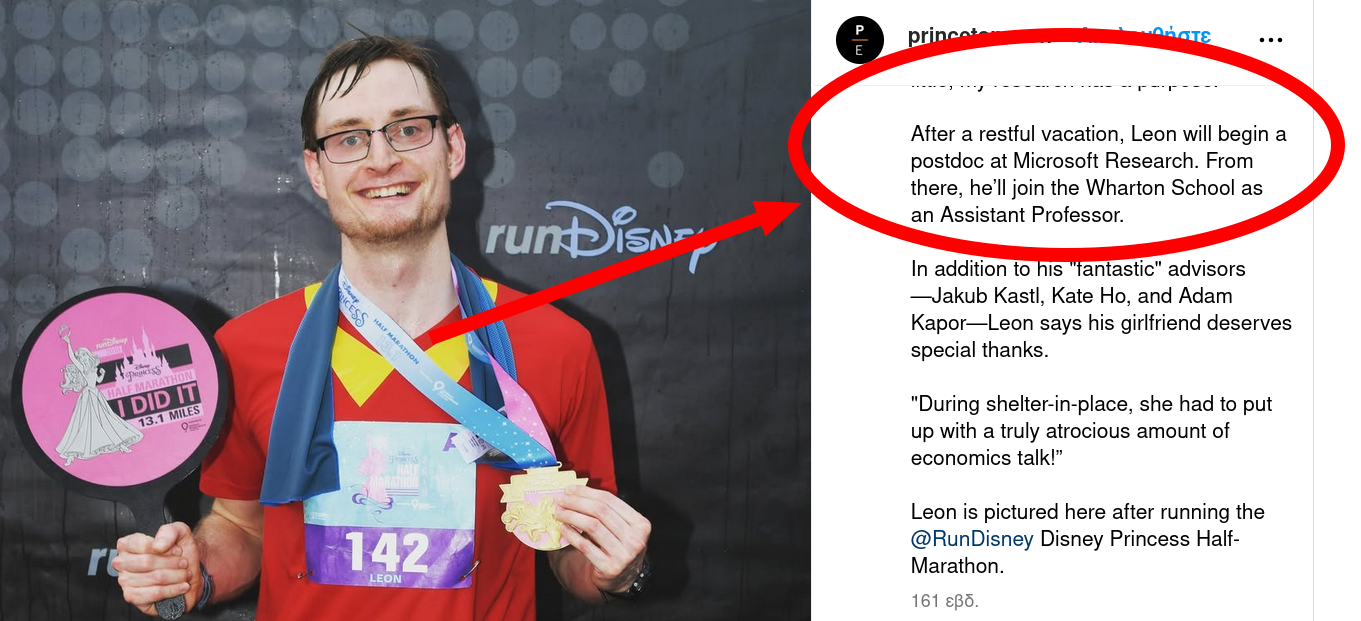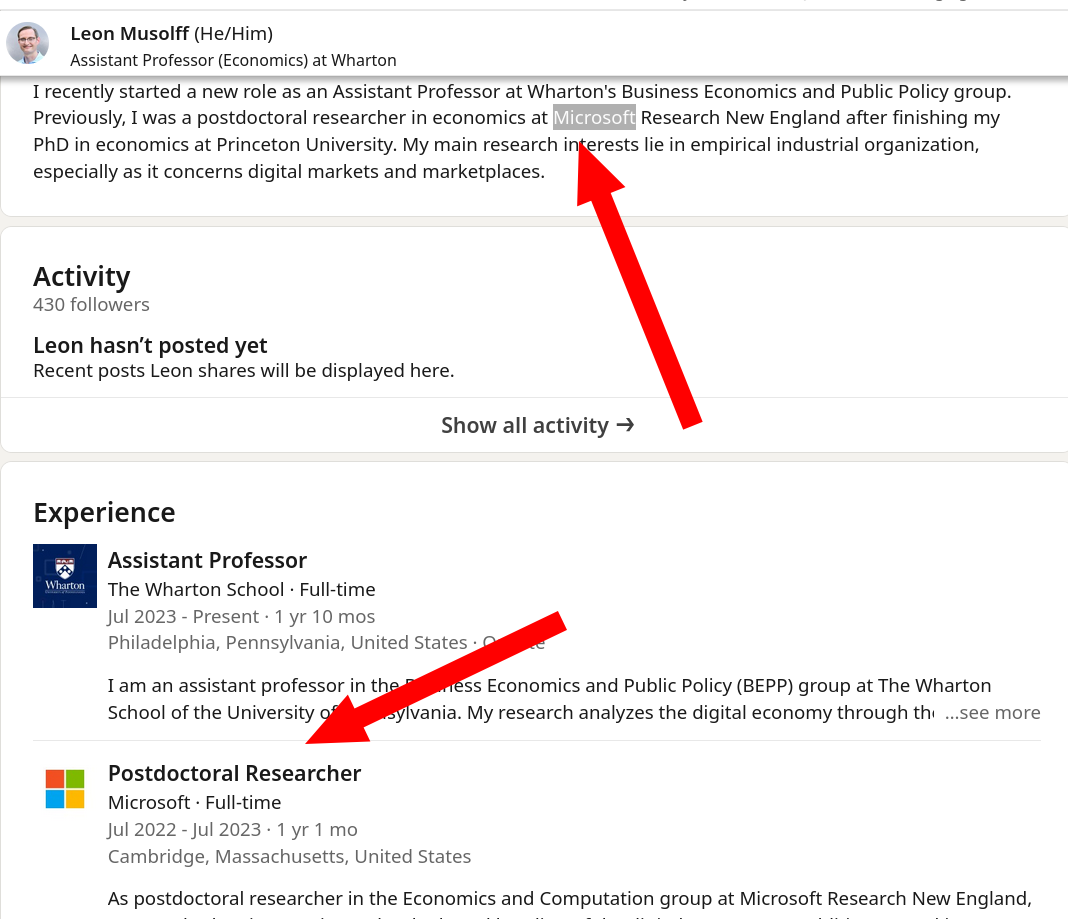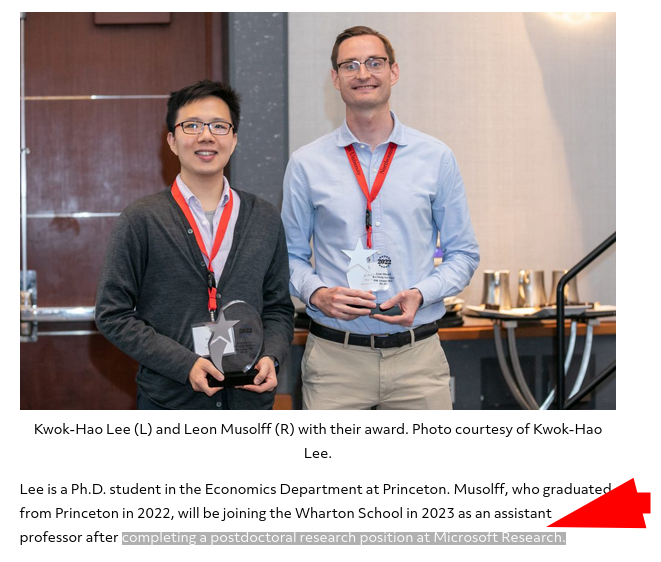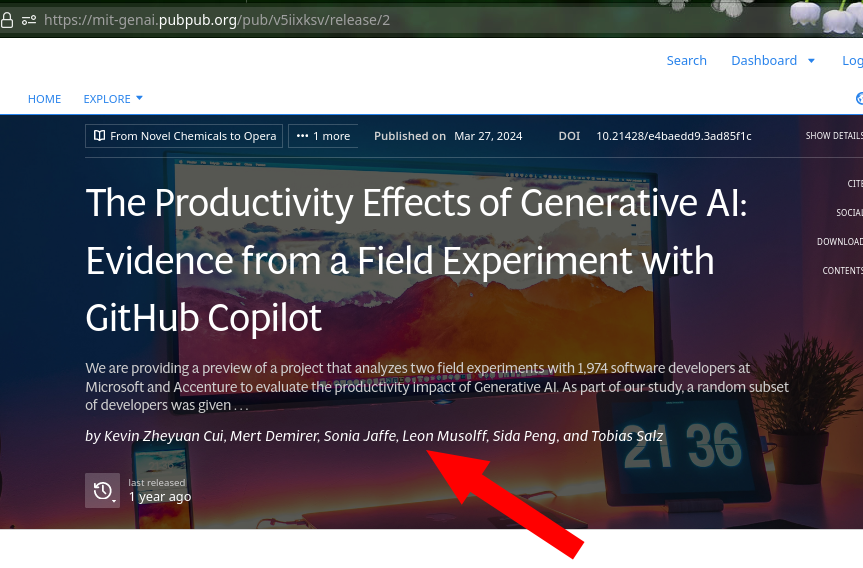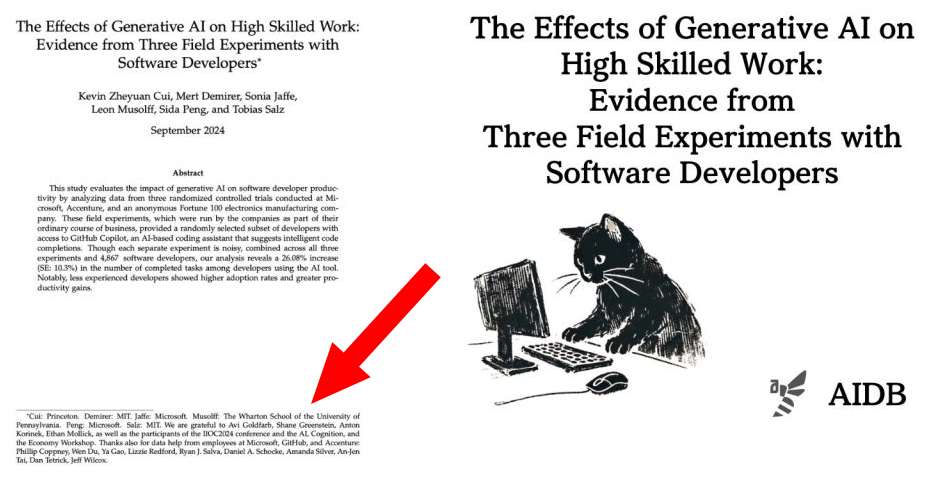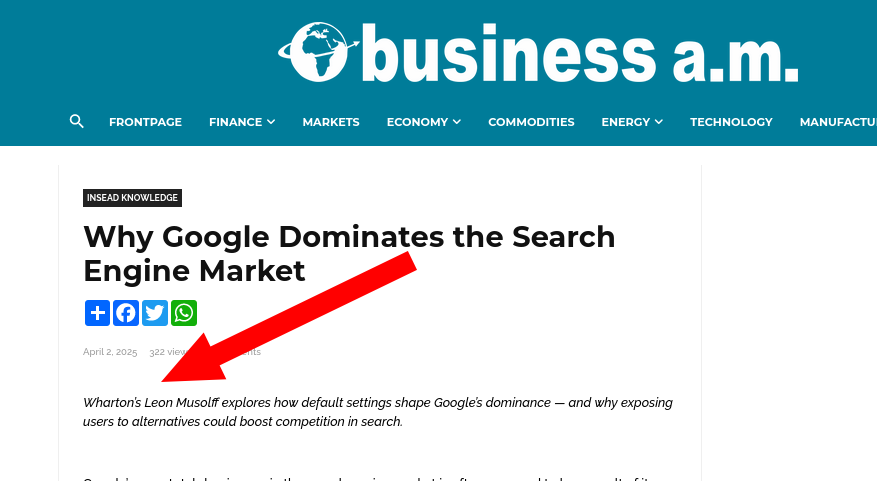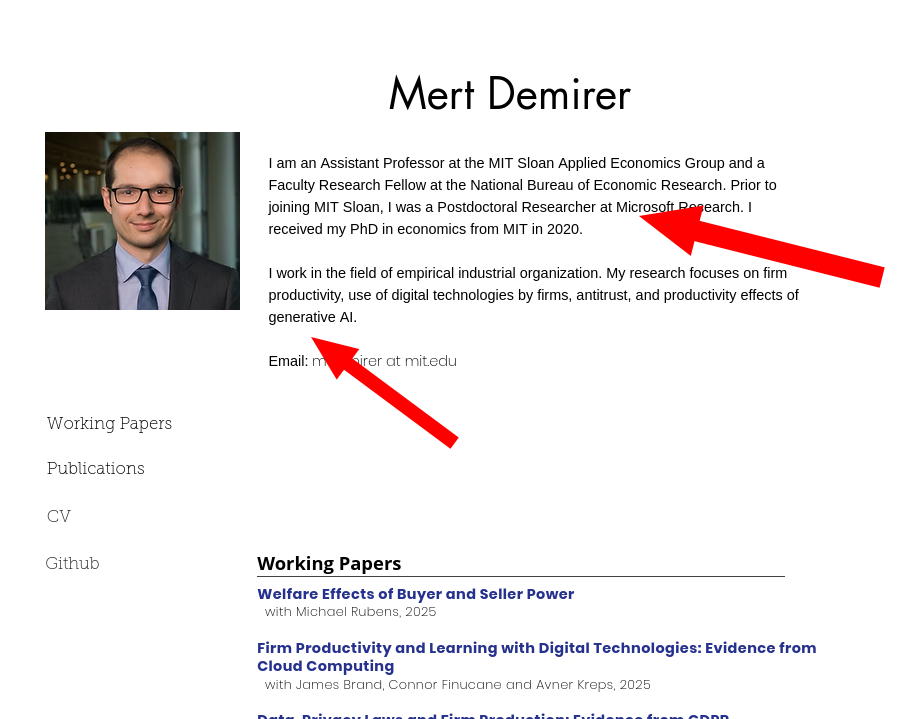Microsoft 'Studies' Again? Leon Musolff is Writing Papers With Microsoft.
So the Amazon Post (Jeff Bezos) has this new article:
Who does that quote?
Only months ago:
In the past, Techrights exposed a bunch of anti-Google 'studies' and professors who turned out to have been funded by Microsoft. We spent almost 20 years naming examples and showing the evidence, which was often in their own CV.
It's almost always like that.
Here is what an anonymous reader said:
Experiment shows people use Google search out of habit
A recent Washington Post article on the results of an experiment claims that people use Google simply out of habit and the behavior changes once they try other choices.
I do not totally agree with this conclusion. Microsoft bundled Bing search to their OS and many millions had the opportunity to try it. In spite of this Bing's share within the search market stayed low. One possible explanation is that many used Bing for a some while and drifted back to Google.
It is possible that the experiment was sponsored by an adversory of Google, or a group thereof.
The government wants you to get paid not to use Google search https://www.washingtonpost.com/technology/2025/04/22/google-trial-search-dominance-alternatives
A novel experiment suggests that Google's monopoly can be tamed with habit-altering tactics. Government authorities are trying to make it happen.
A group of researchers says it has identified a hidden reason we use Google for nearly all web searches: We've never given other options a real shot.
Their research experiment suggests that Google is overwhelmingly popular partly because we believe it's the best, whether that's true or not. It's like a preference for your favorite soda.
And their research suggested that our mass devotion to googling can be altered with habit-changing techniques, including by bribing people to try search alternatives to see what they are like.
The above-named messenger, and the Amazon Post quotes Leon Musolff, is collaborating with and likely funded (one way or another) by Microsoft. Or so-called 'Microsoft Research' (just another bucket for "marketing"; it's a glorified name for marketing).
Even if one can see/find a link to "the study" (in the Bezos-controlled publication), most people won't look any further and just take everything at face value.
There's a good reason why we routinely criticise the bias of the Bezos-controlled publication. It's always trying to sell something, typically for Bezos himself [1, 2, 3]. █
Update: It turns out it's a lot worse. Leon Musolff is basically a "Microsoft Postdoc":
Groomed by Microsoft for marketing/propaganda wrapped up as research? This corrupts the independence of universities, it's not a "donation" or sincere financial support (they want something in return).
Here he is promoting Microsoft slop and plagiarism, as well as GPL violations en masse [1, 2].
Churning out propaganda for Microsoft, just like OSI.
Later on the same university churning out such "studies" about Google (and taking Bill Gates bribes through Jeffrey Epstein) repeats the tainted 'research' while describing him as "University of Pennsylvania". But it says: "The researchers worked with Microsoft, Accenture, and an anonymous Fortune 100 electronics manufacturing company, each of which was running its own experiment with GitHub Copilot, an AI-based coding assistant that suggests intelligent code completions. A subset of software engineers was able to use the tool before all developers had access."
Notice how in the paper they omit his connection to Microsoft (in the disclosures):
This month's article by him says "Wharton’s Leon Musolff", never even once revealing the conflict of interest:
MIT has more such people, even closely connected to Leon:
"Business Economics and Public Policy" sponsored by Microsoft.
"Before joining Wharton, Professor Musolff did his graduate work at Princeton University and completed a postdoc in the Economics & Computation group at Microsoft Research New England," he says. Under news: "Wharton’s Leon Musolff explores how default settings shape Google’s dominance — and why exposing users to alternatives could boost competition in search."
But there's no issue here, none at all...
Maybe the Bezos Post should update its article to clarify this. It is a profound conflict of interest.
Update #2:
From the paper's page: "We are grateful to Marc Cartright, Anlei Dong, Glenn Ellison, Chiara Farronato, Jingyi Guo, Paul Heidhues, Minha Hwang, Aadharsh Kannan, Widad Machmouchi, Markus Mobius, Sarah Moshary, Aviv Nevo, Michael Schwartz, Fiona Scott Morton, Steve Tadelis, Catherine Tucker, Mike Whinston, and audiences at Charles River Associates, Chicago Booth, NBER SI Digital Economics, Harvard-MIT IO Seminar, HBS Markets and Competition Conference, Northwestern Antitrust Conference, NYU Stern IO day, Stanford SITE, Stanford Behavioral Seminar, University of Michigan, Wharton, UVA, VIDE Seminar, Temple University, and TSE Economics of Platforms Seminar for helpful comments. We thank Chris Karr and Audacious Software for dedicated work on the Search Extension browser extension, and we thank Chiara Farronato and Andrey Fradkin for allowing Search Extension to use code developed for their work. We thank Shotaro Beppu, Jack Cenatempo, Juan Carlos Cisneros, Grace Coogan, Sameer Nair-Desai, Shiqi Yang, Wanxi Zhou and especially Wonjoon Choi for exceptional research assistance. We are grateful to the Sloan Foundation, the Sloan Research Fellowship, the Stanford Institute for Economic Policy Research (SIEPR), and the Business"
Also in this page: "Economics and Public Policy Department at the Wharton School of the University of Pennsylvania for generous support. We also gratefully acknowledge Microsoft Bing for sharing data with us. The experiment was approved by the MIT Committee on the Use of Human Subjects (Protocol # 2308001088) and was registered in the American Economic Association Registry for randomized control trials under trial AEARCTR-0012884; the pre-analysis plan is available from https://www.socialscienceregistry.org/trials/12884. Disclosures: Allcott, Castillo, and Musolff have previously worked at Microsoft Research. Gentzkow has done litigation consulting for Google and has been a member of the Toulouse Network for Information Technology, a research group funded by Microsoft. The views expressed herein are those of the authors and do not necessarily reflect the views of the National Bureau of Economic Research."
On Matthew Gentzkow: "I have been a paid consultant for Amazon [Bezos] and done economic consulting for Analysis Group and Compass Lexecon. Clients for this economic consulting work include large technology companies such as Facebook and Google. I have received compensation as a member of the Toulouse Network for Information Technology, a research group funded in part by Microsoft."
"The individual biographies have no useful info," we've been told.
See the following:
Some of the above are nothing short of "corporate academics", i.e. operatives in "scholar" clothing. Or lobbyists. We covered many in the past. Now that the US government pressures universities into particulars views (by denying them funds) we should be very worried about an accelerated drift towards oligarchs' bank accounts (even foreign oligarchs with hostile interests). If they receive no federal funding, then private funding (sellout) will become attractive.


